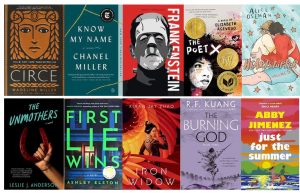When the Kony video went viral on Facebook, I was one of the first people to watch it. Hours later when I opened Facebook, there was an outcry from most of my friends literally begging every living soul to watch the Kony video. The video was well produced and incredibly compelling, eliciting a visceral emotional response.
I remember a friend who came me and said, “Howard, I know how deeply you feel about the children of Africa… what do you think of Kony 2012? Can we raise awareness and funds here at Concordia?”
I did not want to jump on a bandwagon without knowing where it was going, so I explained how emotional the Ugandan situation is and why it’s a great idea to be involved in issues like that. However, I admitted that I knew little about Kony, and I was not comfortable to speak up about it.
Harlan Ellison once wrote, “You are not entitled to your opinion. You are entitled to your informed opinion. No one is entitled to be ignorant.” So, before I went posting something for my 1,300 Facebook friends to see, I needed to be informed. I decided to get educated first, spending time researching all sides of the Kony issue. I know I am a skeptic.
Notably, I saw numerous posts from my Facebook friends who shared articles which called Invisible Children Inc. “an extremely shady nonprofit” and admonished people for blindly forwarding a video that equates to little more than “emotional blackmail.” These critics primarily evaluate Invisible Children for not being financially transparent, for using the majority of donations for travel expenses, producing films and funding the largely-corrupt Ugandan military, instead of actually helping victims by rebuilding schools and hospitals. The articles urge readers to send their money to other useful and needy causes.
After reading that and other dissenting articles, I was pretty convinced that in the same way it’s popular to get behind a charitable cause without doing all your research, it is also popular to condemn causes which get so much rapid attention. I struggled with the question: is “Kony 2012 too main-stream?”
I find Joseph Kony to be an appalling human being, and it seems there is no debate about this. However the question we should ask our selves is: Is Kony the most important thing to worry about right now?
Over the last 26 years, Kony has abducted thousands of children into his rebel group, the Lord’s Resistance Army, forcing them to work as either sex slaves or soldiers, and he is responsible for countless murders. Many say that his power has waned considerably in the past decade–so would the United States’ resources be better focused elsewhere? In my opinion, these questions do not invalidate the cause.
I think we need people who take action on issues that they care about, and it does not matter whether you think it’s the most important thing. If everyone focuses on “the most important thing” then who will focus on the “less important”? The Kony video might have caused some tremors within the world of social media, but that doesn’t mean that they are wrong for wanting to bring a villain like Kony to justice. Invisible Children is fighting to make the world a better place; you can’t fault them for wanting to focus on something that you personally don’t think is as important as something else.
While I understand Invisible Children’s temptation to want to find and kill Kony as punishment for his heinous misdeeds, I strongly feel there is a better approach. Africa established Truth and Reconciliation Committees after genocides and human rights abuses in places like South Africa, Burundi and Rwanda. Through these committees, war criminals can hand themselves over and plead for amnesty and pledge to help rebuild the society they destroyed. This may sound unjust in the sense that some might think criminals will go unpunnished. I understand this is a grey area of justice, but we already have former LRA commanders who are under amnesty in Northern Uganda, and they are helping rebuild communities. What choice can we take here: having a dead Kony or a jailed Kony who does nothing? This calls us to spend millions of dollars tracking down Kony and having hundreds of Ugandan and possibly Americans killed in the process, or giving Kony a choice to surrender himself on an amnesty deal. Shall we spend more money and lives for Kony’s? Or guarantee Kony amnesty and see if he will peacefully surrender? The fact that he has been out there for 26 years means that we have to think of a different approach to handle this situation, for the good of Ugandans. This is a debate of justice versus the greater good of Ugandans, and Invisible Children seems to think it a worthy project to risk having many killed in pursuit of a single individual, who apparently has left Uganda.
Although I disagree with the stratergy they are advocating for, I applaud Invisible Children and everyone who took the time to watch the video and share it. Their hearts were in the right place, and I think that’s always the first step toward changing the world for the better. Who is to make that call anyway?




Excellent clear reasoning! Thank you for your research & insight.